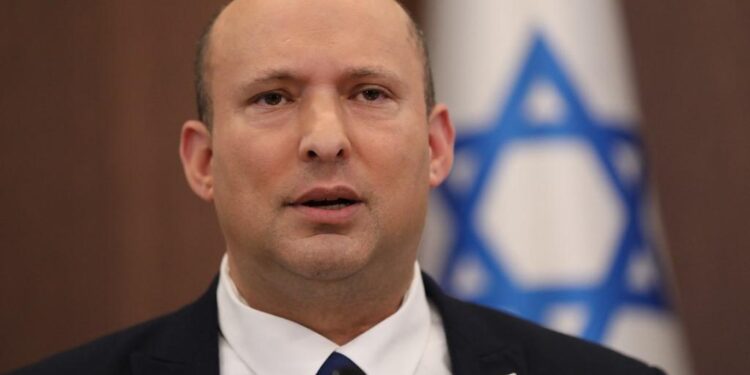Agencies-Gaza post
Israeli premier convenes cabinet before parliament dissolution
Israeli Prime Minister Naftali Bennett called what is likely his last cabinet meeting as prime minister on Sunday, with parliament expected to dissolve this week, triggering new elections in the fall.
Bennett’s decision to go to the elections ends an ambitious political project that has united eight ideologically disparate parties that have chosen to put aside their differences to oust former leader Benjamin Netanyahu, the current opposition leader, who now has the opportunity to return to lead the country. The elections, the fifth held by the country in three years, aggravate an unprecedented political crisis in Israel.
At the meeting, Bennett listed a number of achievements under his year-old government and thanked his coalition partners, which included dove parties supporting the Palestinian state, nationalists who don’t, and, for the first time, in Israeli history, an Arab faction politician.
“It was an excellent government that relied, yes, on a complicated coalition. And here in this room is a group of people who have been able to put aside ideological disagreements, rise above and work for the state of Israel, ”he said.
As part of the power-sharing deal that brought Bennett to power, he is set to relinquish the post of prime minister to Foreign Minister Yair Lapid, a former centrist broadcaster, once parliament is dissolved. Elections are expected in late October and polls show Netanyahu’s Likud party is expected to win the most seats.
Though as in most votes during the current political turmoil, Netanyahu, who is on trial for corruption, has been unable to muster a majority to form a coalition government, with some of his traditional allies refusing to join him. This could further prolong the crisis after the next vote.
While Bennett’s government helped stabilize the economy and went through the final year of the coronavirus pandemic, it was beset by disagreements over the same issues it was trying to avoid, particularly the 55-year Israeli occupation of the West Bank. Bennett said he decided to put an end to his political experiment because the government was unable to renew regulations that establish separate legal systems for Jewish settlers in the territory and for Palestinians.
Bennett’s own nationalist faction, Yamina, was harassed by deserters, lawmakers who claimed the prime minister, a former settler leader, had veered too far into the center in his attempt to keep the coalition intact.
Bennett, who entered politics ten years ago, has not said whether he will run for the next election.

















